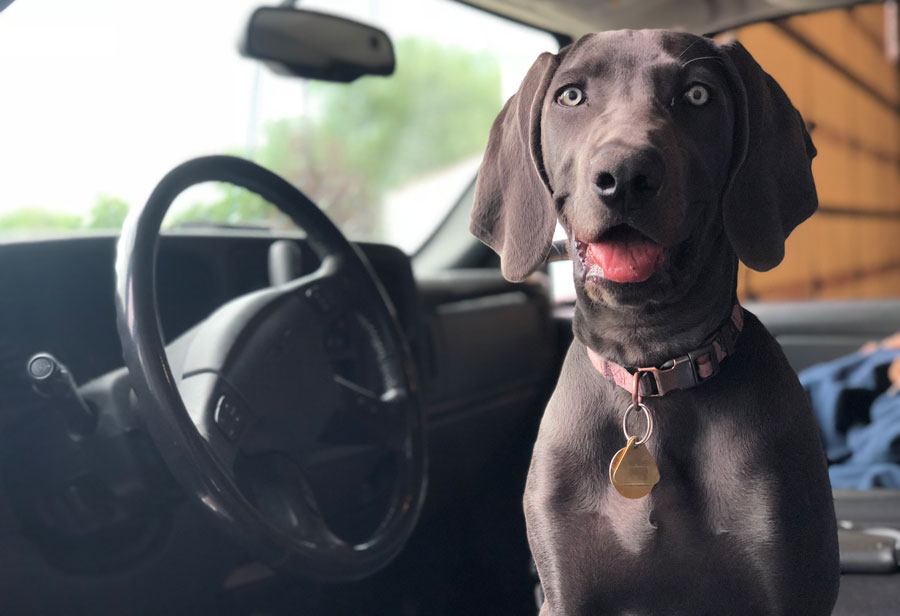How to help your dog transition as you go back to work
Published at
IDAHO FALLS — As people start to go back to work, some pets may not be thrilled to lose the constant companion they’ve had for weeks.
Local veterinarians say typically, it’s dogs, not cats, that suffer from separation anxiety. Dr. Garth Waddoups, who works at Mountain River Veterinary Hospital in Rigby, said there are going to be some issues with dogs and separation anxiety as owners return to work and leave their home offices behind.
“The anxiety can range from very mild depression, not wanting to eat, all the way up to becoming destructive and aggressive,” he said. “Some of the more extreme cases where we see aggression and destructive behavior, they’ll chew things up, scratch at the doors, try to get out and chew furniture.”
Dr. Adam Petersen, the owner of Skyline Animal Hospital in Idaho Falls, said herding and working-class dogs are more prone to separation anxiety, such as Australian shepherds and Rottweilers. Weimaraners, Vizslas and Dalmatians are also high on the list.
“Those dogs are real high energy, and they just bounce around because they were born and bred to be out in the field, chasing things around,” Petersen said. “We’ve taken them out of that setting that they were designed to do, and we just want to hug them and love them. Well, they want to go find a bird, so they need to be occupied.”
Owners can take steps to help prepare their dogs for when you leave home, Waddoups said. He suggests either putting your dog in doggy daycare for a couple of hours every day or sticking your dog outside for a few hours and avoiding contact with your pet during that time.
“Get him used to a change in the routine because that routine becomes pretty important to animals as well, and they’ve become over the last few months dependent on all of the things that happen during the day,” Waddoups said. “Mix that up a little bit so that the routine gets unsettled before the separation actually takes place.”

Waddoups said owners who know their dogs will likely have an extreme case of separation anxiety could try putting them on the drug Reconcile a week before returning to work.
Petersen said it’s important to remember that dogs are den animals and placing them in a kennel can be a place of comfort for most of them. For dogs who don’t enjoy the kennel, he recommends owners buy a DVD set called “Crate Games,” which can be found on Amazon. It has different games that an owner can play with their animal to get it more comfortable with a crate.
“Some dogs can put up a fight and not necessarily be interested in it at first, but if you can get them comfortable to a crate or a kennel, the vast majority of separation anxiety type of things will actually disappear,” Petersen said.
As far as what to put in the kennel with your dog, Petersen said it depends. A dog prone to separation anxiety might eat a toy or destroy the bed it’s lying on.
“Initially, I would be pretty minimalist, particularly for dogs struggling with separation anxiety,” Petersen said. “Maybe a pad on the bottom, but not a soft squishy bed type of pad … (something) that would be very difficult for them to chew up.”
Waddoups said right now might also be a good time — especially for dogs around the age of 8 years old — to receive a health check and maybe even have blood work done. That can uncover if your animal is suffering from challenges such as heart disease, congestive heart failure or arthritic changes. That way, owners are aware of their pets’ situation and can make them comfortable during this transition.
“Separation anxiety isn’t a one-way street. Some people have gotten dependent on their pets, and they’ve become very, very much more important during this COVID deal than they were before,” Waddoups said. “And as they go back to work, they’ll suffer some of those things, and knowing that their pets are healthy and well and will be home when they get there in good shape is a comfort to them.”
For further help with separation anxiety, contact your vet.


